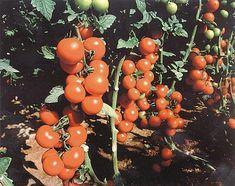
Weather conditions in the main sources of winter production are causing a tightening of availability in tomato supply to the UK marketplace.
Murcia, in mainland Spain, is the main supplier to the UK at this point in the season and over the last two weeks temperatures have been unseasonably cool, while there has also been rainfall and cloud cover.
“Temperatures have dropped quite sharply so we have seen night-time levels of 5°C and day-time temperatures of 14°C,” said Jorge Pereperez of A Gomez. Usual temperatures for the time of year are 9°C to 10°C at night and 16°C to 18°C during the day.
As a result fruit has not been maturing so quickly and, without gaining the necessary colour, is not suitable to market.
Availability is being supplemented by the Canary Islands which is still relatively early in its season. “The market overall is very good as there is less fruit from everywhere,” said Ramón Malo at Allfruit, which sources from Tenerife.
Prices have strengthened and best Canary Islands fruit this week commanded 580-620p a tray compared to 250-320p last year, said Malo. “We had a bit of rain three weeks ago and temperatures went slightly cooler,” he explained. “We expect the season to continue on a good note.”
Two locust swarms which swept across the islands over the past week have fortunately not had any impact on tomato crops which are grown under netting. The locusts struck in Lanzarote and Fuerteventura whereas export-tomato production is centred in Gran Canaria and Tenerife.
“There is a genuine shortage at the moment and prices have shot up,” said Tony Zerpa of Victoria Trading. “We had a cold snap in the islands about a week ago and rainfall, but availability is picking up so this week volumes for picking should come back to normal so next week’s arrivals will be stronger.”
The picture is further complicated by lack of availability from Morocco where crops have been spared locust damage thanks to plastic covers and favourable winds, but fewer plantings mean reduced volume. The poor season last year discouraged some growers from planting and a heatwave in August destroyed some plants which have since had to be replanted causing delays.



